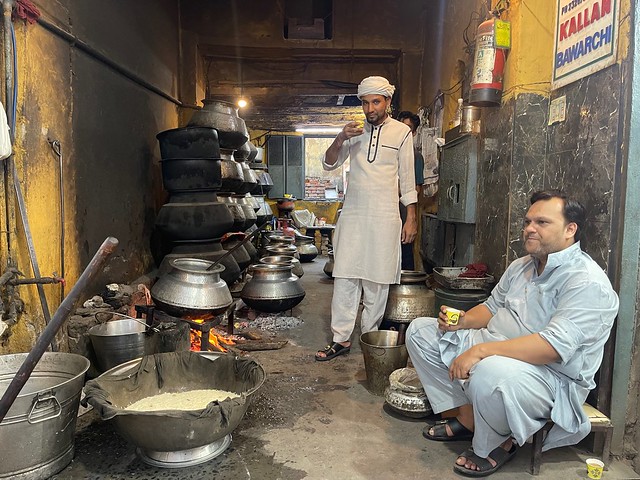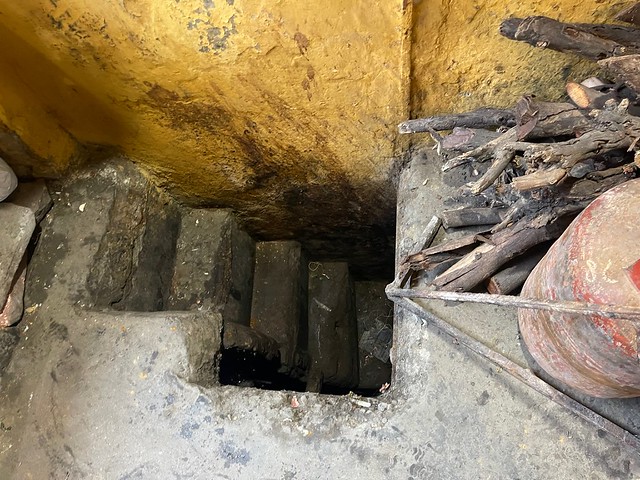
City Food – Kallan Bawarchi, Matia Mahal

Landmark kitchen.
[Text and photos by Mayank Austen Soofi]
The potbellied cauldrons. The long metal ladles. The platters with chopped green chillies. The smoke-blackened walls. Air smelling of elaichi, laung, mirchi, pyaz, adrak, lehsun.
Here is the timeless world of Kallan Bawarchi. This kitchen, or bawarchi khana, in Old Delhi appears to be as old as Red Fort. But no. Its founder Haji Kallan, aka Kallan Bawarchi, is very much a part of our living history. “He died just 15 years ago,” says Muhammed Asad. Aged 40, he flicks out the mobile phone from his shirt pocket, and shows a scanned photo of his pioneering grandfather.
The Walled City is speckled with bawarchi khanas specialising in elaborate dawats (meals) for special ceremonies like weddings, engagements and parties. Each such place has so-called karaigars and helpers rustling out traditional dishes so rare that they can’t be spotted in the area’s tourist-friendly restaurants (no snobbish Old Delhi gourmand dines in those guidebook destinations). Sandwiched between Spooky Turkish Ice-cream parlour and Haji Jameel Bakery, Kallan Bawarchi is more distinguishable because it is located on the principal street of a principal bazar (Matia Mahal). The bawarchi khana extends deep into the rear, with stairs going up to an attic, and stairs going down into a basement.
This evening, the karigars are giving final seasonings to a meal ordered for a “party” in Gali Gararraya. Young Azan, a helper, is stirring a deg filled with meethi zardari, or sweetened rice. The somber Abid, one of Haji Kallan’s grandsons, is busy over an adjacent deg. Some of the cauldrons are arranged on the floor, each of which is circled with a line of angare, or smouldering coals. “We let dishes of ghosht and chawal simmer on dum during the last stage of the cooking to subtly soften their remaining kasar (tightness),” explains Asad. Besides, he adds, the slow cooking lends deeper flavours to the dishes.
Known by his family and contemporaries as Baap, Haji Kallan died at 80. He started as an independent bawarchi around 1955 with three dishes—korma, biryani and meetha zarda, which he would cook at home in Galli Sakke Wali. He moved the operations to its present address in 1965. Today, Haji Kallan’s two surviving sons and four grandsons have expanded his legacy to a wider choice of Mughlai delicacies. Then they went beyond it. In 2010, butter chicken was added to the bawarchi khana’s repertoire; two years later, chilli chicken made its debut.
The bawarchi khana is open daily from 8am to late in the night. It is not an eatery where you can go for an impromptu dinner. The order must be given at least a day in advance. While visiting, do peer inside to look at the degs, as well as the window at the other end of the kitchen. Together, they look sublimely beautiful.
Of heritage cuisine
1.
2.
3.
4.
5.
6.
7.








Recent Comments